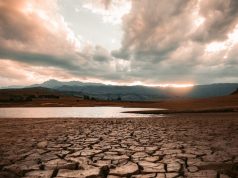
INSIGHT by Pooja Khosla, Vice President Client Development at Entelligent
| Global greenhouse gas (GHG) emissions could grow 50% by the year 2050, driven by population spikes and increased demands from developing countries. As a result, the planet could be at least 2°C warmer by mid-century, propelling natural disasters’ severity and frequency. Lethal heat, inconsistent weather patterns, and overwhelming air pollution will lead to food shortages and lack of water. Major cities will be underwater. Billions of people will be displaced from their homes. This is the reality we face if developed countries and investors fail to take decisive action.
It’s important to pair this data with the ugly truth: the economies of developed countries like the United States have benefited from fossil fuels, deforestation, and polluting practices predating the Industrial Revolution. We had centuries to build urban infrastructures and diversify our economies, all uninhibited by environmental regulations.
From 1850 through 2011, the United States and the EU produced more than half of the planet’s global CO2 emissions. The consequential environmental impacts are disproportionately felt by emerging nations through droughts, flooding, and rising sea levels. In fact, the study Poverty & Death: Disaster and Mortality 1996-2015 found that 90% of deaths caused by natural disasters were in low-and-middle-income nations.
Simply put, we cannot pretend that all countries enjoy equal opportunities and should be held to comparable regulatory standardswithout participation from international investors. Now is the time for wealth management firms and individuals alike to make a positive impact with their dollars while simultaneously entering fast-growing markets.
| Fossil Fuels Are a Lifeline for Emerging Markets
We cannot talk about CO2 emissions without acknowledging the large role of coal, as it emits nearly twice as much carbon dioxide as natural gas. Yet, because of its availability, reliability, and minimal technology requirements, it’s the cheapest option for emerging countries. Coal-fired electricity galvanizes industry and economic diversification to help lift citizens out of poverty, creating even more energy consumption.
Increased coal emissions are the trade-off for preventing crippling power outages or the ability to electrify millions of homes previously without access. It’s currently necessary if their citizens are to enjoy many of the luxuries developed countries take for granted, such as dependable transportation, refrigeration, and healthcare.
Emerging countries’ inhabitants grow at a greater rate than in developed countries, a trend which will only accelerate with time. For example, the UN anticipates that the populace of sub-Saharan Africa will near-double by 2050. Based on the same data, fast-growing India will overtake China’s population around 2027. This will naturally lead to even more urbanization and energy consumption.
Consequently, experts project that developing nations’ coal consumption will soon overtake developed countries. We can already witness such shifts. In Forbes, Robert Rapier notes that 2019 saw the US and Germany decrease coal consumption by 14.6% and 20.7%, respectively. Contrastingly, Indonesia and Vietnam increased usage by 20% and 30.2%. Current projections suggest that India’s coal usage will increase by 90% by 2050 to meet population and industrial demands.
The adoption of renewable energy requires time and economic resources. Using India as an example, millions still live without power despite electrification being a government priority and billions spent on the project. In an effort to lower emissions, the country now spends more on renewable energy investments than fossil fuel power generation. Yet the coal sector still grows nonetheless to meet overwhelming demand.
| How International Investors Can Assist Developing Countries With Energy Transitions
To provide sustainable power for fast-growing populations, developing countries need capital for infrastructure and product development targeted to their specific circumstances. Investors tend to shy away from developing countries, much to the detriment of the environment and their own coffers. As emerging economies boom, so does their appetite for new vehicles, appliances, entertainment, and electricity, nurturing opportunities for companies and shareholders to profit.
〉Invest in companies developing in-demand technologies, such as solar power storage
Due to many developing nations’ sunnier climates, solar photovoltaics (PV) is the most easily harvested renewable resource. A necessary component for serving uninterrupted service during low-sun times are batteries, yet what’s currently available is too expensive for widespread use in emerging markets. In response, the World Bank committed $1 billion to the development of affordable alternatives designed to meet developing countries’ environmental and socioeconomic conditions.
〉Explore exchange-traded funds (ETFs) within the renewable energy sector
The ideal portfolio limits risk by encompassing multiple regions and alternative energy sources, decreasing the likelihood of a single climate or sociopolitical event threatening the bulk of your investment. Make sure to read the ETF’s standards for the types of assets they hold and companies they support.
〉Invest in alternative energy companies, minimizing risk by purchasing bonds
There are a significant number of renewable energy companies spanning a diverse range of types, nationalities, and geographic reach. As is true with any investment, do your due diligence to learn about their income diversification, upcoming research development, competitive market share, and climate risk as determined through third-party analysis.
〉Purchase green bonds from developing countries Green bonds operate similarly to traditional bonds except that the money will help finance environmentally-driven projects.
〉Divest from companies unnecessarily contributing to the GHG emissions of developing countries
Follow the lead of global investment managers like BlackRock and Bank of America by pulling investment capital from companies that make a significant portion of their profits from coal-burning energy or similarly harmful practices. The money could instead be funneled towards companies that provide cleaner alternatives or towards developing countries’ real economies.
| brief bio
Pooja Khosla Ph.D., Vice President Client Development at Entelligent. Dr. Khosla is an economist, econometrician, and mathematician who has deep knowledge to build investing solutions. She has extensive experience in predictive modeling, microfinance and designing impact investment tools. Khosla has been working on impact solutions since 2003 both nationally and internationally. Khosla has been working with Entelligent since 2016 developing Entelligent’s data science team, Smart Climate technology, Smart Climate Indices as well as additional climate risk related products. She is one of the inventors of patented Smart Climate technology. Khosla has several publications in economics, impact investing and microfinance. Besides designing sustainability products Khosla has an active teaching career training student in economic applications and data science. Khosla holds a Ph.D in economics, and master degrees/diploma in three disciplines including economics, statistics and public relations.
| about
Entelligent is a global data analytics provider helping investment professionals to “do well” in the market while “doing good” in the world. The Company has developed a world-class, proprietary methodology for investment professionals who are seeking ways to make an impact on climate change using the power of the capital markets. Over the past three years, the Company has developed its data analytics platform, proven its methodology, secured its intellectual property and developed commercial partnerships for long-term revenue growth.
| All opinions expressed are those of the author. investESG.eu is an independent and neutral platform dedicated to generating debate around ESG investing topics.








